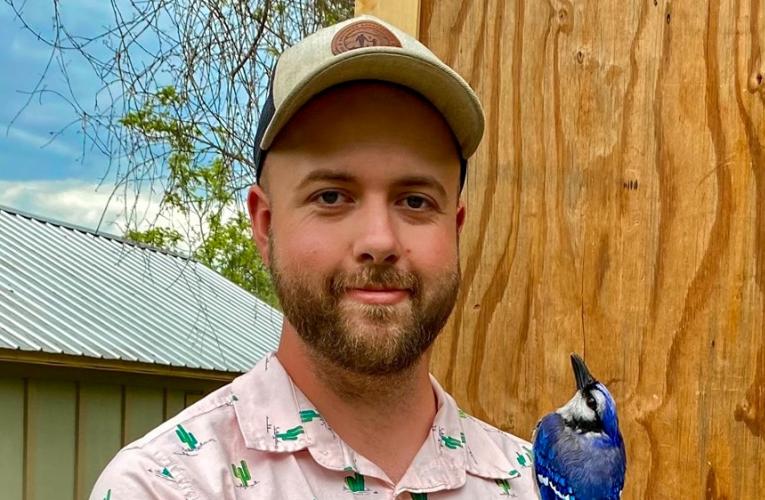DURHAM, N.C.— Israel Golden, a second-year Master of Environmental Management (MEM) and Master of Forestry (MF) concurrent degree student, spent his summer interning with both the American Chestnut Foundation (TACF) and the Wild Bird Research Group in western North Carolina.
Each summer, Nicholas School students complete internships with organizations around the world. These internships provide valuable opportunities to gain career-related experience and build a professional network.
Golden’s internship with TACF is funded through the Stanback Fellowship Program, a partnership between the Nicholas School of the Environment and nonprofit environmental organizations. The program provides students with significant project-based learning experiences in energy, conservation, advocacy, policy, research and applied resource management.
Duke Environment recently corresponded with Golden to learn more about his summer internships.
What are you doing at your summer internships?
"I am the Chestnut Restoration Intern at TACF. The mission of the organization is to restore the American chestnut to its native range (essentially Appalachia). A fungal pathogen – the chestnut blight – decimated the American chestnut in the early 20th century, reducing it from the most dominant and abundant species on the East coast to an understory sapling.
TACF has a restoration strategy that focuses on traditional breeding, biocontrol, and bio-technology. Due to the backlog created by COVID, we’re catching up on a lot of field work right now. I’ve planted 3,000 chestnuts at the Meadowview, Virginia research farms, phenotyped trees in N.C., S.C., T.N., Ala. and G.A. for blight resistance, and, most recently, we’ve begun the work of pollinating trees with transgenic pollen and inoculating back-cross varieties with blight to measure resistance – all very exciting stuff.
In addition, I’ve worked with the U.S. Forest Service at Bent Creek on a phytophthora resistance study. Phytophthora is a soil pathogen that rots the roots of trees and is actually more lethal than Chestnut blight. All of this work is advancing the foundation’s mission to breed blight-resistant, phytophthora-resistant American Chestnuts that can one day be released into the wild.
At Wild Bird Research Group, I am a banding technician and we are working on the Monitoring Avian Productivity & Survivorship (MAPS) study. MAPS is an international cooperative effort among public agencies, non-governmental groups and individuals to assist the conservation of birds and their habitats through bird banding.
We collect data on a variety of parameters including sex, age and whether or not the bird has been recaptured from previous years. This information is shared with the Institute of Bird Populations where the data is analyzed to reveal trends in migration and the health of migratory bird populations. Our station is located at the North Carolina Arboretum near Bent Creek Experimental Forest.”
How did the Nicholas School help you during your internship search?
“The Nicholas School helped me during my internship search by providing opportunities to explore interesting conservation work being done by a diverse set of organizations. In particular, the Career and Professional Development Center helped me hone my cover letters and provided helpful interview advice.”
How will this experience help you in your career?
“I chose to work with the American Chestnut Foundation because I wanted to learn how a group of devoted scientists, researchers and invested community members went about restoring a diminished keystone species.
I believe that these techniques will be valuable and widely applicable in the age of climate change as the need to restore and preserve key ecosystem interactions becomes ever more pressing. Such relationships are also exemplified in the bird-banding program as these migratory populations depend on intact habitat from Costa Rica to North Carolina.”

